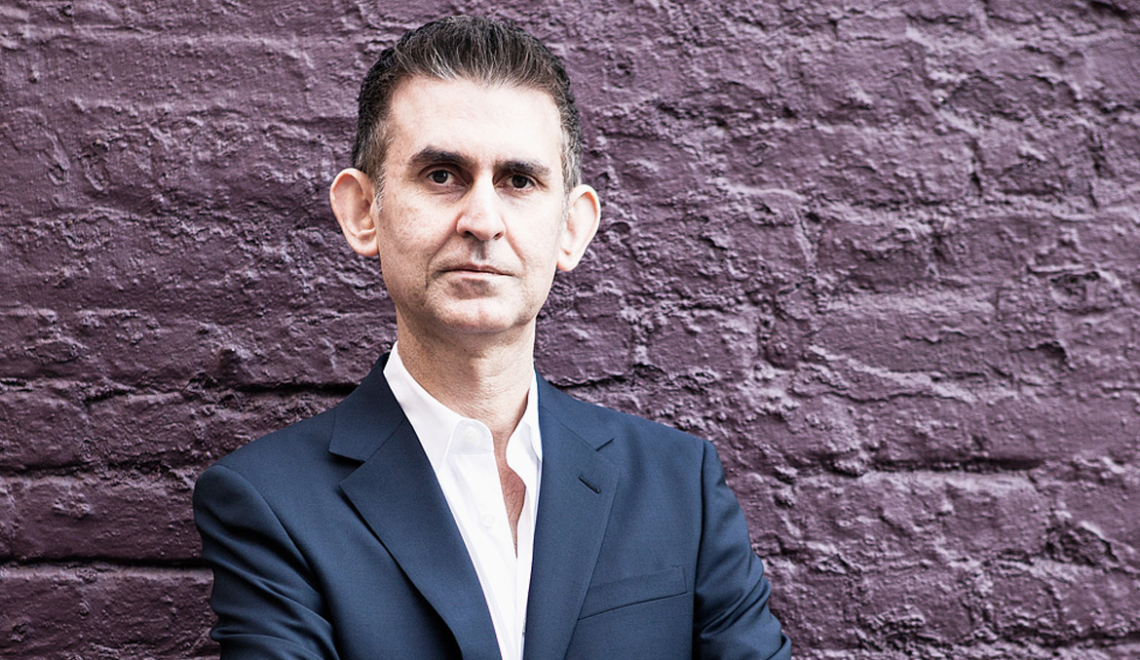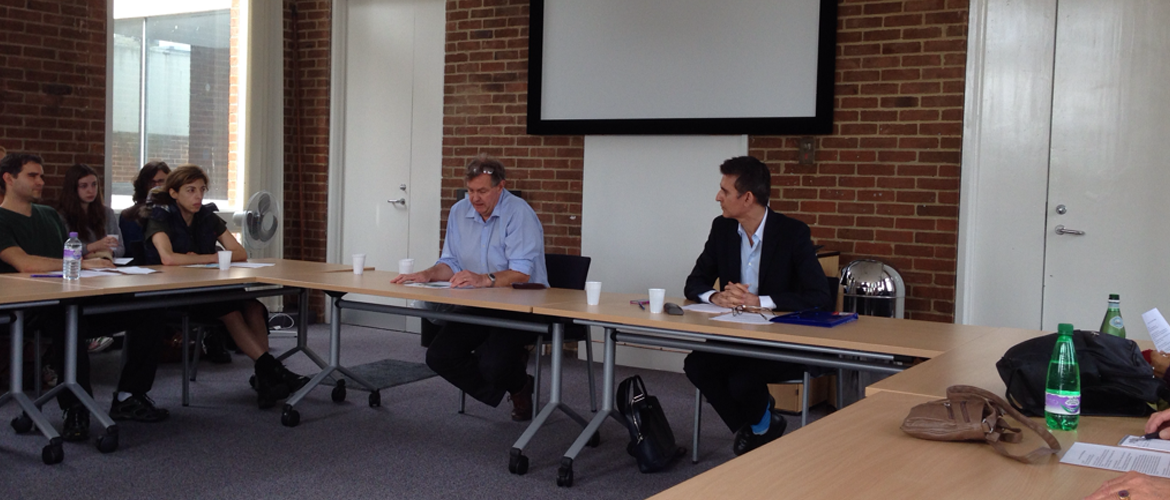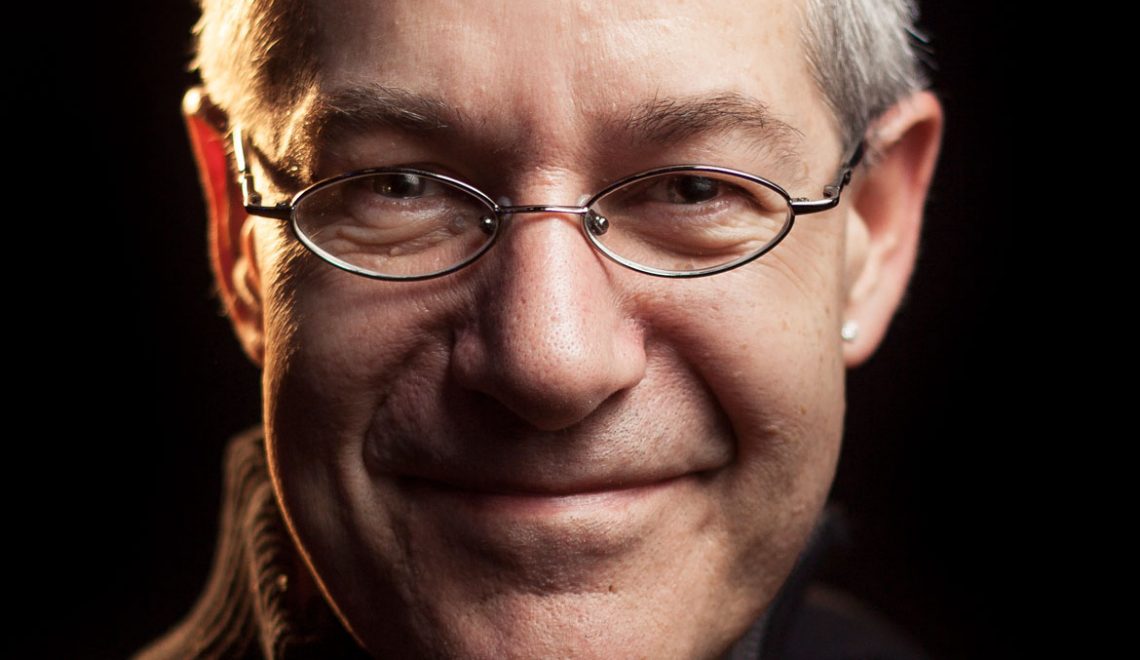
Quassim Cassam is a Professor of Philosophy at the University of Warwick. Since moving to Warwick he has been Head of Department (2010-12) and President of The Aristotelian Society (2010-2011). He has previously held positions at the University of Cambridge, University College London and the University of Oxford. Furthermore, he has been published in the New York Times, The Guardian and many others. In this interview, we have touched on a wide range of topics from his work on self-knowledge to his favourite books, spoiler alert – one of them is Individuals by P.F. Strawson. It has been a pleasure to interview Quassim and we hope you enjoy reading it.
Introduction
Q: What is your dinner party monologue for when someone says “and what do you do?”
A: I hope I don’t do monologues but people are generally quite interested when it emerges that I teach and write philosophy for a living, and even more interested if I let on that one of my research interests is self-knowledge. People are often genuinely curious about what philosophers do, and many say that they wish they had studied some philosophy at some point in their lives.
Early Life
Q: Can you tell us a little bit about where you grew up; were you a rural or city dweller?
A: I was born in Mombasa, Kenya. When I was growing up there Mombasa was a sleepy little town on the coast of Kenya, with a tropical climate, unspoilt sandy beaches and a slow pace of life. I don’t think it’s like that anymore. When I was 7 I was sent to an English boarding school in the Kenyan highlands and I had my first encounter there with English culture and, most shocking of all, English cooking. Eventually, when I was 13, my parents emigrated to the UK, where my father had studied dentistry in the late 1940s.
I had my first encounter there with English culture and, most shocking of all, English cooking.
Q: What subject(s) did you excel at in school, and which did you find most challenging?
A: I was a late developer and didn’t really excel at anything until I got to university. My school grades were pretty lousy and wouldn’t have got me anywhere near a good university today. I think I got a place at Oxford on the strength of my performance in their entrance examination. Every one of my answers was staunchly Marxist.
Q: Can you recall any reoccurring comments from your school reports?
A: Quiet, shy, introverted.
Q: Did you ever have a eureka moment where you thought, “this is the subject I want to study”?
A: I studied Philosophy, Politics and Economics (PPE) at university and my main interest when I started was Political Theory. I read Marx, Hobbes, and Locke as a teenager and thought that I either wanted to be a political theorist or a political economist. When I got to university I rapidly gave up the idea of studying anything connected with economics, and it seemed to me that many of the issues I was most interested in were philosophical. So I ended up taking mostly philosophy courses.
Q: Can you remember the point at which you fell in love with your subject?
A: Yes, very clearly. A Saturday evening in the library of Keble College, Oxford, reading chapter 3 of a book called Individuals by P. F. Strawson. I was totally hooked both by Strawson’s claims and the way he argued for those claims. I subsequently discovered that Strawson’s arguments were known as ‘transcendental arguments’ and that this way of arguing was invented by Immanuel Kant in the 18th century. I ended up writing my PhD on transcendental arguments and Strawson was my supervisor. In retrospect, the most surprising thing about my first encounter with Individuals was that I was in a library on a Saturday evening. I should have been out doing something less edifying.
Academic Education
Regarding your undergraduate studies:
Q: Which University did you study at, and was it your first choice?
A: Oxford. Yes, it was my first choice.
Q: What undergraduate degree did you study for at University, and in hindsight would you select the same subject again?
A: I studied Philosophy, Politics and Economics. If I could do it all again I would probably study Medicine.
Q: Can you remember a University lecturer who really inspired you?
A: I don’t remember going to many lectures, though I do remember being inspired by a series of seminars given by Charles Taylor on the Nozick’s theory of justice in Anarchy, State and Utopia. I thought those seminars were absolutely brilliant. Teaching at Oxford mainly takes (or took) the form of tutorials, many of which were one-on-one. One of my tutors was James Griffin, who subsequently had the Chair in Moral Philosophy at Oxford. He was a tall, distinguished American who always wore a suit and struck me as incredibly clever. I also thought he was very cool and I wanted to be him.
Regarding your postgraduate studies:
Q: What motivated you to further pursue academia?
A: I wasn’t at all committed to becoming an academic. In fact, I applied to law school when I finished my undergraduate degree but decided to stay on to do a PhD when I was offered a place on the Philosophy graduate programme at Oxford. It was the prospect of working with Strawson that kept me going. When I was close to finishing my doctorate I again applied to law school and decided that I would become a lawyer unless I got a job teaching Philosophy at Oxford straight out of graduate school. I certainly wasn’t expecting that to happen but it did.
Q: What institution(s) did you study at in your pursuit of postgraduate education?
A: Oxford
Q: What was the title of your PhD thesis, and how would you explain your findings to a novice?
A: The title was Transcendental Arguments and Necessity. It’s all a long time ago now but as far as I can recall the thesis contained no significant findings and quite a few serious errors. At least the topic was good. Transcendental arguments try to show that unless we have certain kinds of knowledge, it wouldn’t be possible for us to have what philosophers call ‘experience’. If these arguments are successful then they would amount to refutations of some varieties of scepticism. Sceptics don’t doubt that we have experience but they do doubt whether we have knowledge of mind-independent reality. Transcendental arguments try to show that without knowledge of mind-independent reality it wouldn’t be possible for us to have any experience at all or at least any self-conscious experience. I always thought that was a neat way of arguing against scepticism. Unfortunately, transcendental arguments don’t work.
I was way too serious the first time around and didn’t have nearly enough fun.
Q: If you had your time as a student again, what would you do, if anything, differently?
A: I think I would work much less hard and not spend my Saturdays evenings in the college library. I was way too serious the first time around and didn’t have nearly enough fun. I wouldn’t make that mistake again.
Research Focus
Q: Tell us about your current research focus?
A: Right now I’m writing a book called Vices of the Mind. It’s about ‘epistemic vices’, which I define as character traits, attitudes or ways of thinking that get in the way of knowledge. Epistemic vices are bad for us as knowers because and to the extent that they obstruct the acquisition, retention or transmission of knowledge. I call this theory of epistemic vice ‘obstructivism’. Standard epistemic vices include closed-mindedness, dogmatism, wishful thinking, prejudice and intellectual arrogance. One question is whether it’s true that these things get in the way of knowledge and, if so, how they have this effect. This is a serious question because it has sometimes been argued that some so-called epistemic vices, such as dogmatism, can be good for us as knowers. For example, Kuhn argues for the value of dogmatism in science. It’s less easy than one might think to demonstrate the badness of epistemic vices. There are also questions about how responsible or blameworthy we are for our own epistemic vices and about the possibility of self-improvement. In my book I use lots of real world examples, such as the Iraq war and Brexit, to build a general theory of epistemic vice and give an account of specific vices. Many philosophers think that epistemic vices are character traits and I agree that some epistemic vices are character traits. However, it seems to me that many of our most serious and fundamental epistemic vices are bad attitudes towards truth, knowledge and evidence. I think this connects with recent discussions of the rise of ‘post-truth politics’, the increasing trend towards ignoring inconvenient facts if they get in the way of one’s ideological commitments or ambitions.
Q: What do you believe is your single most important piece of research?
A: Naturally it’s the book I’m now writing! On a more serious note, a couple of years ago I published a book called Self-Knowledge for Humans. In recent decades most philosophical accounts of self-knowledge in the tradition in which I work have concentrated on relatively trivial or easy self-knowledge. Examples might be a person’s knowledge that they believe it’s raining or that they want ice cream. In my book, I give an account of what I call ‘substantial’ self-knowledge, which includes knowledge of such things as ones’ deepest desires, character, values and emotions. It’s a good question why trivial self-knowledge has struck many philosophers as more philosophically interesting than substantial self-knowledge, and the answer to this question has a lot to do with how philosophers conceive of their discipline. If my book sparks a debate about what philosophers of self-knowledge should be doing and promotes greater philosophical interest in substantial self-knowledge that would be a significant achievement. I’m not holding my breath.
Q: Within your area of study, what breakthroughs are on the horizon?
A: I really have no idea and am in any case slightly sceptical about the idea of a ‘breakthrough’ in philosophy.
Q: Let your imagination take over for a minute and tell us what you hope your successors will be researching in 2116?
A: The fundamental questions of philosophy don’t change much and I don’t expect them to be very different in 2116. The answers that philosophers give to these fundamental questions do change and some answers are better than others. The real challenge for philosophy over the next 100 years will be to keep going as an academic discipline and continue to attract the high-quality students it attracts now.
Q: What do you feel your professional legacy will be?
A: I’d like to think I will be remembered as a good teacher and as someone who wrote one or two worthwhile things.

Professor Quassim Cassam giving a talk at the University of Sussex on ‘The Value of Self-Knowledge’. © University of Sussex.
Current Projects
Q: Are you working on any extra-curricular projects at the moment, such as: books, podcasts, websites, or speaking?
A: The thing I’m focusing on outside writing is bringing my ideas on epistemic vices to bear on other disciplines. I’ve recently organised two workshops to be held next year, the first on ‘Professional Vices in Modern Medicine’ (https://professionalvices.wordpress.com/) and the second on the Epistemology of Counterterrorism (https://epistemologyofcounterterrorism.wordpress.com/). I’ve also spent some time putting together a website on self-knowledge (http://www.self-knowledgeforhumans.com/) and did a podcast on conspiracy theories that seems to have annoyed a lot of people – mainly conspiracy theorists (http://philosophybites.com/2015/05/quassim-cassam-on-conspiracy-theories.html).
I did a podcast on conspiracy theories that seems to have annoyed a lot of people – mainly conspiracy theorists.
Advice and Tips
Q: If you could give your 18-year-old self one piece of advice, what would it be?
A: Don’t just focus on one thing. Read as widely as possible and don’t limit the range of options available to you any earlier than is absolutely necessary.
Q: What advice would you give someone looking to start, or progress his or her career in your field?
A: Think at least twice before getting into it. Making it as an academic philosopher is probably harder now than it has ever been and I suspect that a lot of people who pursue an academic career today don’t fully understand what they are letting themselves in for. It is incredibly difficult to make an interesting or worthwhile contribution and the pressures on young academics are huge. Only do it if you have good reason to believe you are really good at it and feel that you couldn’t live any other way.
Q: Which book would you say has had the biggest impact on your life?
A: I guess it would have to be Strawson’s Individuals simply because that was the book that got me hooked on philosophy.
Q: If you could recommend one book to a novice in your field, what would it be?
A: Mortal Questions by Thomas Nagel.
Conclusion
Q: And finally, we are back at the dinner party. Someone offers you a drink, what do you ask for?
A: I prefer restaurants to dinner parties and what I ask for is the wine list. I like martinis too but I know of only one place in the UK where you can get a really good one. Appropriately enough, it’s the bar in London where Ian Fleming used to drink.
If you’d like to find out more about Professor Quassim Cassam you can check out his academic profile, Wikipedia profile and Twitter page.
Advertisement









